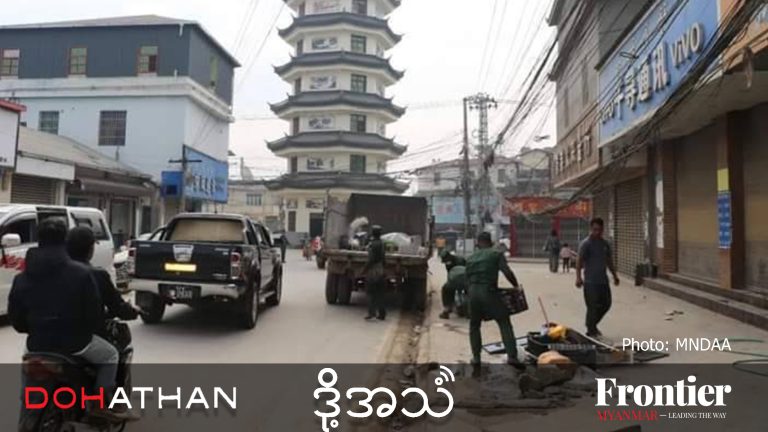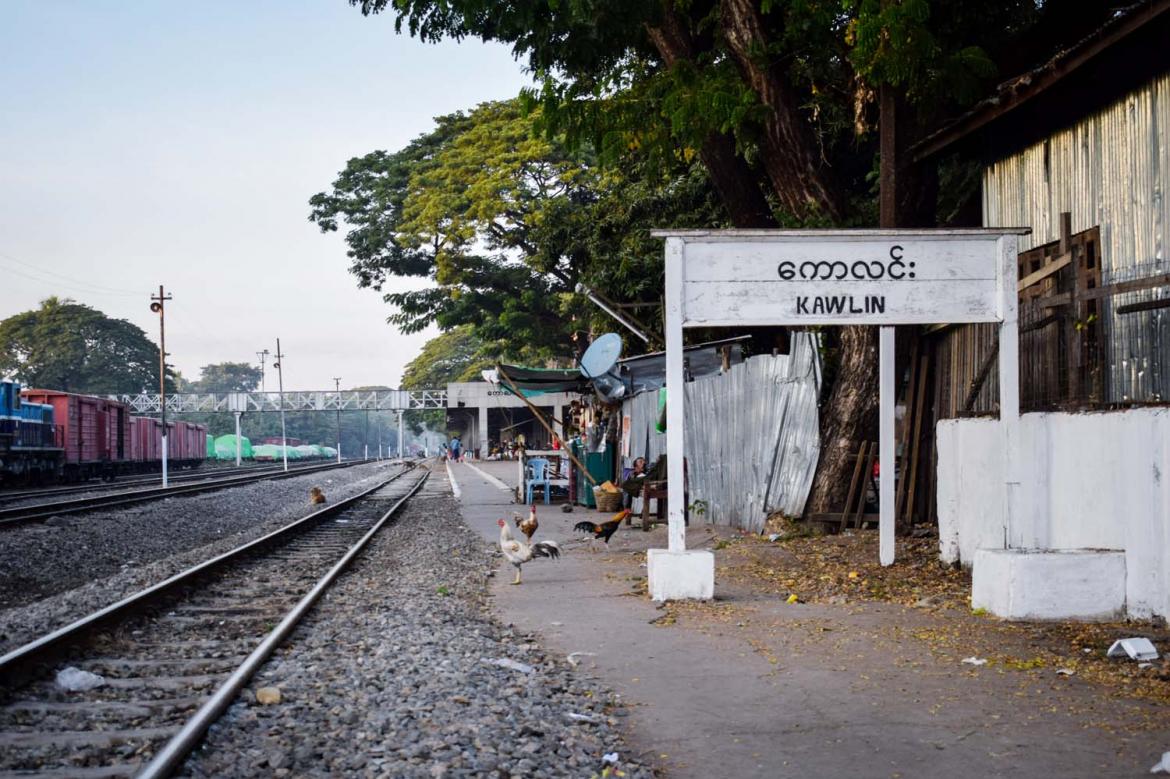Economic factors are at the heart of the divide between the non-state armed groups which signed or refused the government’s ceasefire deal.
In mid-October, eight of the 16 non-state armed groups that participated in long-running peace talks signed the National Ceasefire Agreement. The ceremony was touted as an historic event by government officials eager to extract political capital from the accord before the election on November 8, and by international witnesses, who are set to invest heavily in the peace process through a multi-donor fund.
The eight groups that did not sign were ostensibly motivated by lofty motives. They had demanded the inclusion in the accord of the Kokang rebel group, the Myanmar National Democratic Alliance Army, as well as the Ta’ang National Liberation Army and the Arakan Army, which, despite its name, is based in Kachin State.
A look at the map and the economic realities in the areas controlled by the non-signatories tell another story: the country’s North-South gap is widening, and economic factors are at the heart of the divide.
The strongest ethnic armies – the Kachin Independence Army and the United Wa State Army – are active in northern Myanmar, in resource-rich states that border China. They founded business empires based on illegal logging and on the gem and narcotics trade. The bilateral ceasefires they negotiated with the junta in the 1990s allowed their businesses to prosper.
A report released on October 23 by London-based watchdog Global Witness that highlighted the massive scale of the jade trade served as an illustration of how profitable the status quo is for the Tatmadaw and some ethnic armed organisations.
Support more independent journalism like this. Sign up to be a Frontier member.
After a yearlong investigation that was supported by official customs data, Global Witness concluded that jade worth US$31 billion was extracted in Myanmar in 2014. A director of the Ministry of Mining admitted that the figure was “plausible”.
The staggering revenue earned from jade went into the pockets of a small clique comprised of army officers, ethnic elites, and business cronies. The people of Myanmar were left with breadcrumbs, at best.
Global Witness found that the jade trade is a key source of financing for both the Tatmadaw and armed ethnic groups. “There is an incentive there for the hardliners on the government side to keep the conflict going until such time as they can be confident that when the dust settles, their assets will still be there,” said Global Witness spokesperson Mike Davis.
And it’s not just fortunes from gemstones. Current and former leaders of the UWSA have been linked to diversified conglomerate Asia World, Hong Pang Group, Young Investment Group, Yangon Airways, construction firms that work closely with Yangon City Development Committee and a hotel chain, Tetkham Co. Ltd.
In short: the Wa have little to gain from democracy and transparency in the areas they exploit. Accountability is not an appealing proposition for the Kachin Independence Organisation, either. The UWSA recently called a summit for the national ceasefire rejectionists in their de-facto capital, Panghsang, and it is against this backdrop that any cooperation between these groups must be considered.
Ultimately, peace, political autonomy for ethnic minorities, and a federal union will not only be the result of sensible people sitting around a table and concluding that they are just, and that such arrangements will benefit their peoples.
Economic realities will be a strong driver as well. The ethnic elites in Kachin and the Wa region of Shan State will ask themselves this question: What is in it for us, and what are the risks if we abandon the peace process or keep stalling?
Bluntly speaking, the government has two options: the stick or the carrot. The stick will not work, because a guerrilla war against 20,000 Wa soldiers with short supply lines to China is impossible to win, although renewed conflict might do enough damage to the UWSA’s business interests to encourage it to reconsider. Also, the Tatmadaw is a dark horse that might not be fully under the control of the Union government. It has its own agenda and vested interests.
Will the ethnic armies in northern border regions only back down if they are offered a silver-lined deal, however unjust that might be?






